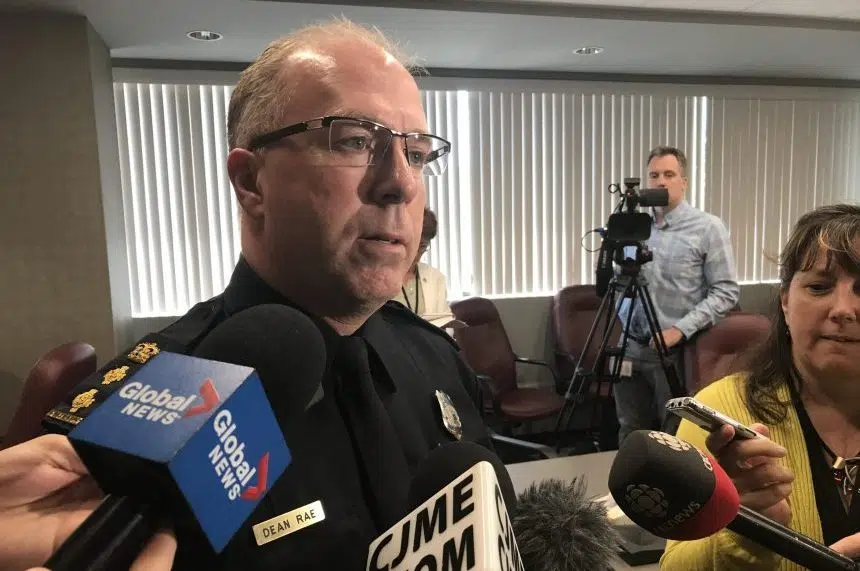“There’s a degree of frustration here,” admitted acting Regina police Chief Dean Rae.
He stood before media Monday after a report from New York-based Human Rights Watch was released that outlined more than 60 allegations of abuse of indigenous women by Saskatchewan police.
“This is an outside group coming into Saskatchewan to look at us. We did our best to provide them with the information,” Rae said.
But according to Regina police, much of that information – including current policies – didn’t make it into the report, which includes allegations of inappropriate strip searches of indigenous women by male police officers. Rae said, in that instance, its been the policy for as long as he can remember to have strip searches done by members of the same sex.
“To my knowledge, it doesn’t happen,” Rae said, when asked if strip searches of women are ever done by male officers, or when no other woman is in the room.
The report’s researchers interviewed 64 indigenous women and social service providers throughout Saskatchewan, all of whom gave consent to participate. Human Rights Watch then assigned the women randomly-selected pseudonyms and sometimes withheld identifying information “to protect their privacy and safety.”
But Rae said that made the information difficult to comprehend.
“It’s really hard to explain or understand even some of their concerns when we’re not given the information,” he said. “We’re hearing the stories of these concerns but we’re not seeing them so, I guess, quite frankly I’d like to see some of the context of these complaints and to be able to look at those a little more closely to understand what they are and exactly how they’re impacting us and when they occurred.”
For example, the report outlined two allegations of excessive force by Regina police on indigenous women.
One reportedly happened in 2013, when a woman said officers slammed her head against the sidewalk during an arrest, breaking her nose and leaving her with two black eyes.
The second reportedly happened in 2014, when a Regina police officer is said to have twisted a woman’s arm so aggressively she said she can no longer bend it, comb her hair or put on her bra.
“If our members made a mistake, we’re willing to own up to that but we need to look at this but we haven’t been given the opportunity to look into those,” Rae said, adding they’ve asked for specifics but none were provided.
“We weren’t given any context, we weren’t given any names, we weren’t even given a location on where those occurred,” he said about the report in general.
Regina police have published a list of their policies and practices as a response to the report.
Recommendations
Human Rights Watch’s report made several recommendations, including one regarding strip searches done by members of the opposite sex.
Rae said RPS already follows, or is working to follow, many of the recommendations. He said they’ll work towards all of the recommendations, except the one that suggests police forces collect – and make publicly available – comprehensive race and gender-disaggregated data.
Rae said they currently only collect that kind of information on arrests.
“This is going to take a bit of work and research to understand exactly what they’re looking for, but quite frankly, I think a lot of recommendations they’ve made, we’re already doing.”











